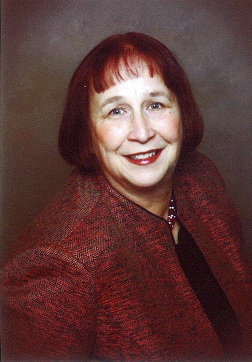Dr. Ethelle G. Lord
Long-term care facilities always promote their person-centered healthcare services. Do you know what it is and does your loved one actually receive person-centered care? How do the providers know if they are delivering person-centered care? How do system managers know where they can improve the quality of care? In the case of a person living with Alzheimer’s, it makes sense to me that the family caregiver would know and feel this model when dealing with staff and management at a facility. What makes sense and what is are often two different things.
What does patient-centered care mean?
1. Respect for patient’s values, preferences and expressed needs;
2. Coordination and integration of care;
3. Information, communication and education;
4. Physical comfort;
5. Emotional support;
6. Involvement of family and friends; and
7. Transition and continuity (Lewis, 2009, p. 1).
Because Alzheimer’s most often affects the elderly, family caregivers are older and face their own health challenges. Given this fact, daily caregiving demands in the first two stages of Alzheimer’s and considering the specialized caregiving demands of the third stage of Alzheimer’s leading to caregiver fatigue; it is realistic to expect long-term placement in the third stage of Alzheimer’s may be appropriate http://www.snocare.org/kit/03CaregiverFatigueTimeline.pdf). The need to provide quality person-centered care for frail elders has been growing for well over a decade and continues to be a pressing topic of discussion. Person-centered care for an individual living with Alzheimer’s must also be family-focused and well managed by an Alzheimer’s Friendly Healthcare Workforce™ (Haug, 1994; Rose, et al, 2007). Providers must create systems to track their services and be willing to face some adversity to continue improving on their delivery.
What constitutes a person-centered care facility?
1. Having skilled, knowledgeable and enthusiastic staff;
2. Opportunities for involving the family caregivers;
3. Provide the opportunity for staff to express their concerns;
4. Staff training and education with feedback opportunities;
5. Management support;
6. Workplace that demonstrates mutual respect and trust; and
7. Physically and emotionally enriched care environments (Person Centered Practice. P. 15).
Nursing home and hospital administrators must adopt a system’s approach to solving problems. Changes in the healthcare laws and funding sources are daily challenges. The American Healthcare system is the most costly in the world and despite this fact, yet the quality of care is often below standards, even poor (Filson, et al, 2011). The person-centered healthcare facility must enhance both access and open communication between family caregivers and management in order to improve those they serve. Perhaps it is time to explore the Caregiver Partnership Agreement Program™ and demonstrate a state-of-the-art, person-centered healthcare model in your organization. For more information on the Caregiver Partnership Agreement Program™, contact the writer at Info@remembering4you.com today.
Conclusion:
Management of long-term care must learn to deliver better person-centered care in order to be able to serve the growing baby boomer population and especially the rapidly growing number of individuals living with Alzheimer’s . The government in the United States is promoting home care for one main reason and purpose: to reduce their reimbursement costs of long-term care to providers and to put the responsibility of care on the shoulders of family caregivers. More abuse and neglect will be inevitable with such a scenario. People living with Alzheimer’s should not be treated as dispensable and family caregivers should not be left with the responsibility of specialized healthcare. Person-centered, family-focused care of our loved ones combined with a competent healthcare team and the Caregiver Partnership Agreement Program™ is the best possible combination for a great outcome. So, do you think your loved one who is living with Alzheimer’s is receiving person-centered care?
References:
Filson, C.P., Hollingsworth, J.M., Skolarus, T.A., Clemens, J.Q., & Hollenbeck, B.K. (2011). Health care reforms in 2010: Transforming the delivery system to improve quality of care. World Journal of Urology, 29, 85-90.
Haug, M. (1994). Elderly patients, caregivers and physicians: Theory and research on health care triads. Journal of Health and Social Behavior, 35, 1-12.
Lewis, S. (2009). Patient-Centered Care: An introduction to what it is and how to achieve it. Retrieved September 7, 2012 from http://www.changefoundation.ca/docs/patient-centred-care-intro.pdf
Person Centered Practice: Guide to implementing person-centered practice in your health service (2008). Retrieved Sept. 7, 2012 from http://www.health.vic.gov.au
Rose, J.H., Bowman, K.F., O’Toole, E.E., Abbott, K., Love, T.E., Thomas, C., & Dawson, N.V. (2007). Caregiver objective burden and assessments of patient-centered, family-focused care for frail elderly veterans. The Gerontologist, 47(1), 21-33.
About the author:
Ethelle G. Lord, former president of the Maine Gerontological Society in the State of Maine, currently is president and professional Alzheimer’s coach offering Alzheimer’s coaching and consulting with businesses at www.Remembering4You.com, and is a professor of Organizational Behavior at several universities. Dr. Lord has a Doctorate of Management in Organizational Leadership from the University of Phoenix. Her 10-year experience as a family caregiver originated with her husband who was diagnosed with Alzheimer’s in Jan. 2003. In that decade she has seen a daily influx of new Alzheimer’s cases. Dr. Lord realized there is an urgent need for a change in perspective with regards to providing individual and institutional care for individuals living with Alzheimer’s. She is married to Maj. Larry S. Potter, USAF retired, and lives in Mapleton, Maine. Dr. Lord is available for presentations, training, and Alzheimer’s coaching/consulting.
She can be reached at Info@remembering4you.com

